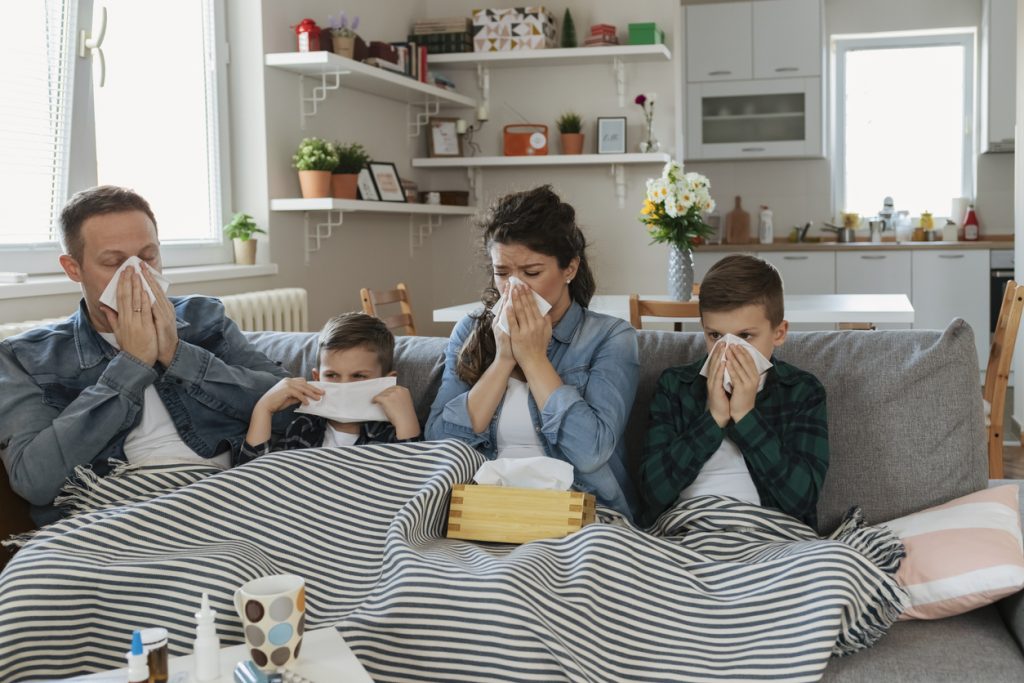9 tips from doctors on how to beat the cold and flu
The winter months are peak cold and flu season in Australia. According to InstantScripts’ doctors, the risk of catching a bug this year could be higher than usual.
Why? Aussies have had low levels of exposure to viruses over the last few years because of pandemic restrictions and that’s meant “losing the immunity which we would have built up from having a virus.
But now that we’re mingling more, our exposure risks increase. And on top of that, fewer people have been getting shots against common winter bugs like the flu.
As we approach the winter months, our doctors share some great advice about how to best protect ourselves and stay healthy.

What are the common winter bugs in Australia?
According to Government infectious diseases surveillance data, there are a number of viruses that are circulating over the winter months, including:
• Common Colds: a viral infection that affects the nose and throat.
• Influenza: a viral infection of the respiratory system.
• Other flu-like viruses: such as RSV, adenovirus, and parainfluenza virus. Symptoms can vary but often include fever, cough, sore throat, congestion, and fatigue.
• COVID-19: According to the experts, COVID may become a seasonal virus. There may be another surge of COVID in Australia over the winter months.
Here are 10 simple ways to protect against cold and flu bugs and boost the strength of our immune systems.
1. Keep up to date with vaccinations
Vaccination is one of the best ways to protect yourself from getting sick this winter. There are two main shots available:
• Flu vaccine: Recommended for anyone over the age of 6 months, the flu shot protects you from serious disease. You need to get it annually, because the strains of flu are different from year to year.
• COVID vaccine booster: Recommended if you’re over 65, or 18-64 with health problems that increase the risk of severe COVID-19, and if your last shot or confirmed infection was 6 months ago or longer.
People over 70, or with serious health problems, may benefit from the pneumococcal vaccine. This shot helps prevent conditions such as pneumonia and meningitis.
2. Get adequate sleep
Getting the right amount of sleep helps improve our overall health and wellbeing. Try some of this advice if you’re having trouble getting to sleep.
3. Exercise
Exercise is a great immunity booster, alongside its many other benefits. Try walking 15-20 minutes each day.
4. Eat well
To pack your body with immune-boosting macro- and micro-nutrients, eat plenty of nutrient-rich greens, vitamin-filled fruit and veg, and whole grains.

5. Keep your stress levels down
Stress is known to weaken the immune system. Try offsetting your stresses with mindful breathing practices, yoga or some gentle exercise.
6. Stay home if you’re sick
It’s wise to cut down the number of people you mingle with when you’re sick. This helps reduce community transmission of germs and viruses.
It also helps you get the rest you need to get back to full health. If you need a Medical Certificate, we offer them online, so you can rest up and get back to feeling better faster.
7. Good hand hygiene
Wash your hands frequently with soap and water including before and after eating, and after going to the toilet.
Use a hand sanitizer when you’re out and about. Cover your coughs and sneezes. And promptly dispose of tissues you use to blow your nose.
8. Wear a mask
Consider wearing a mask in enclosed spaces if you’re feeling sick. This may help to protect other people around you, particularly those who are more vulnerable to viruses.

9. Seek medical attention if symptoms worsen
A lot of winter bugs can be safely managed at home with rest, fluids and healthy foods.
But there are times when you should seek face to face medical help. See a doctor if you notice any of these signs:
• vomiting frequently
• not able to drink fluids
• intense headache
• pale and feel sleepy
• chest pain
• trouble breathing
• rash with fever
• stiffness in the neck
• light hurts the eyes
To speak with an InstantScripts Doctor:
Request a ConsultationIf you have run out of your script:
Request a ScriptWritten by Sally Bathgate. Sally is a health and medical writer with more than 10 years’ experience writing plain-language materials for patients and their carers. Sally holds a Bachelor of Science (Hons I) in Pharmacology from UNSW.
© InstantScripts
Level 8 / 637 Flinders St.,
Docklands VIC 3008

